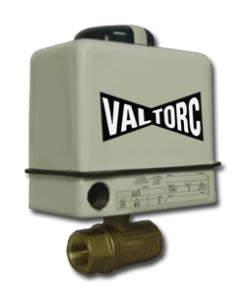Introduction:
In the fast-paced world of industrial control and automation, valve actuators play a crucial role in optimizing efficiency, precision, and reliability. Among the various types of valve actuators, electric ball valve actuators have emerged as a game-changer. In this guest blog, we will explore the capabilities, benefits, and applications of electric ball valve actuators, shedding light on how they enhance control and streamline operations in diverse industries.
Understanding Valve Actuators:
Valve actuators are devices that automate the operation of valves, enabling remote control and precise positioning. They eliminate the need for manual operation, ensuring swift and accurate response to control signals. Electric actuators, in particular, utilize electric motors to drive the valve\'s movement, offering several advantages over other actuation methods.
The Power of Electric Ball Valve Actuators:
Electric ball valve actuators are specifically designed for ball valves, which are widely used in industrial applications due to their versatility and flow control capabilities. These actuators provide seamless integration with ball valves, enhancing their performance and efficiency. Let\'s delve into the key features and benefits of electric ball valve actuators:
Precise Control and Positioning:
Electric actuators offer precise control over valve positioning, allowing for accurate flow regulation. The motor-driven actuation ensures consistent and repeatable valve positions, enabling operators to achieve the desired flow rates with ease. This level of control is especially critical in applications that require precise flow modulation and process stability.
Quick Response and Fast Actuation:
Electric actuators boast fast response times, swiftly translating control signals into valve movements. This rapid actuation ensures prompt adjustments to changing process conditions, reducing delays and optimizing system efficiency. In time-critical applications, such as emergency shutdowns or real-time flow control, the speed of electric ball valve actuators can be a decisive factor.
Simplified Wiring and Integration:
Electric actuators simplify the installation process with their straightforward wiring requirements. The integration of electric ball valve actuators into existing systems is seamless, reducing downtime during installation or retrofitting. With standardized electrical connections and compatibility with various control systems, these actuators offer flexibility and ease of integration.
Remote Control and Monitoring:
One of the key advantages of electric ball valve actuators is their ability to be controlled remotely. Operators can monitor and adjust valve positions from a centralized control room, improving safety and efficiency. Additionally, these actuators can be integrated into SCADA (Supervisory Control and Data Acquisition) systems, enabling real-time monitoring, diagnostics, and data logging for enhanced process optimization.
Energy Efficiency and Cost Savings:
Electric actuators are known for their energy efficiency, as they consume power only during actuation, unlike continuously powered alternatives such as pneumatic actuators. This energy-conscious design results in reduced operating costs and environmental impact. Moreover, the low maintenance requirements of electric actuators contribute to long-term cost savings.
Applications of Electric Ball Valve Actuators:
The versatility of electric ball valve actuators makes them suitable for a wide range of industries and applications. Some notable areas where these actuators excel include:
Water and Wastewater Treatment:
Electric ball valve actuators play a vital role in regulating the flow of water, chemicals, and wastewater in treatment plants, ensuring optimal process efficiency and maintaining water quality.
Oil and Gas:
In the oil and gas industry, electric actuators enable precise control of flow rates, facilitating safe and efficient extraction, transportation, and processing operations.
HVAC Systems:
Electric ball valve actuators contribute to the efficient operation of heating, ventilation, and air conditioning systems, regulating fluid flow for optimal temperature control and energy savings.
Process Control:
In manufacturing plants, electric actuators automate the control of fluids in various processes, enabling precise adjustments and maintaining consistent production parameters.
Conclusion:
Electric ball valve actuators are revolutionizing the industrial control landscape, empowering businesses to achieve enhanced efficiency, accuracy, and control in their operations. From their precise positioning and rapid response to simplified integration and remote control capabilities, these actuators offer a host of advantages. Whether in water treatment plants, oil refineries, or HVAC systems, the power of electric ball valve actuators is driving improved performance and streamlining operations across diverse industries.
As a leading supplier in the industrial control and valve market, Valtorc International offers a comprehensive range of electric ball valve actuators, ensuring reliable and efficient automation solutions. With our commitment to quality, innovation, and customer satisfaction, we strive to empower businesses with cutting-edge technologies that optimize their processes and drive success. Experience the power of electric ball valve actuators with Valtorc International and unlock a new level of control and efficiency in your operations.



